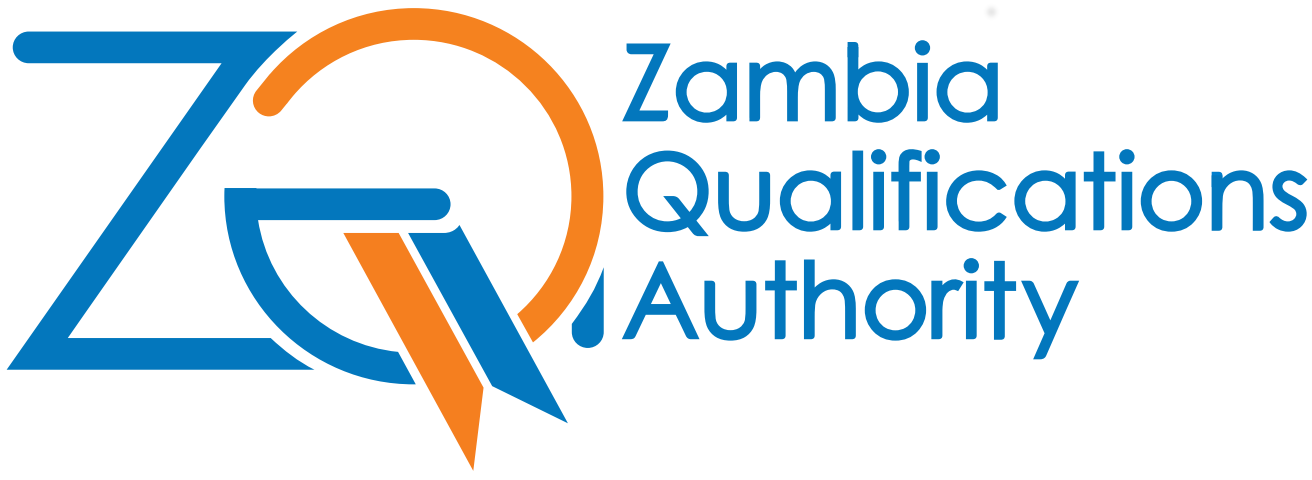
First Issue: 30 MAY 2017
The Zambia Qualifications Authority (ZAQA) is a statutory body which was established by the Zambia Qualifications Authority Act No. 13 of 2011. The Act gives mandate to the Authority to develop and implement a national qualifications framework; provide measures to ensure that standards and registered qualifications are internationally comparable; and provide for matters connected with, or incidental to the foregoing.
Further, the Act in Section 6(2) (d) (iv) and Section 9 (1) (c) provides that Appropriate Authorities must recommend qualifications or part qualifications to the Authority for accreditation on the Zambia Qualifications Framework, if the qualification meets the relevant criteria. It is on this basis that the Authority wishes to state its position regarding Honorary Degrees and the status of Professor with reference to the Zambia Qualifications Framework.
A Qualification in the context of the Zambia Qualifications Framework is an award granted for successful completion of a programme of study and is the formal outcome of an assessment and validation process which is obtained when a competent body determines that an individual has achieved pre-determined learning outcomes to pre-determined standards.
There are two types of degrees: earned and honorary degrees at different levels such as Bachelor, Master and Doctorate.
HONORARY DEGREES
An honorary degree, in Latin is a degree “honoris causa” or “ad honorem” (“to the honor”), is conferred as a way of honouring individuals for their outstanding contribution to a specific field or to society in general. These are mere decorations for contributions made to society and not earned through academic achievements. Typically, honorary degrees have been awarded to individuals with sustained lifetime achievements, instead of a single contribution in life. Distinguished individuals have been awarded honorary degrees for their exemplary accomplishments and achievements that serve a greater good in society.
Honorary degrees do not require a programme of study with defined learning outcomes or set standards. In the absence of clearly defined learning outcomes, approved learning programme and set assessment protocols for issuance of honorary degrees, such degrees cannot be designated as qualifications but as honours. In this regard, the awarding institution stipulates the criteria upon which the honour is conferred. Given that the Zambia Qualifications Framework is a portfolio of qualifications, honorary degrees do not qualify to be registered and accredited on the Framework. In this regard, honorary degrees will continue to be conferred by competent awarding bodies; however they shall not be recognised by the Zambia Qualifications Authority. Consequently, they shall not be placed on any level of the Zambia Qualifications Framework.
PROFESSORSHIP
A Professor is a lecturer of the highest academic rank in a department of a University or University College. In many jurisdictions, the title of Professor is conferred by the institution when one meets its set criteria for the rank and after undergoing a rigorous assessment process both at the institution where they work and other academic institutions of similar standards.
Even though institutional criteria exist for appointment or promotion to the rank of Professor, such criteria do not constitute a defined level description or learning outcomes as required of qualifications. In this regard, there are no universal criteria for appointment or promotion to the academic rank of Professor. However, it is dependent on sustained academic career with proven research and publications in one’s academic specialisation and generation of new knowledge.
In the case of Professorship, there is no universal set of standards or programme of study and hence it is not a qualification but an appointment. ZAQA therefore wishes to state that Professorship is not a qualification but an academic rank conferred by a competent awarding body. Professorship shall not be registered and accredited on any level of the Zambia Qualifications Framework.
USE OF HONORARY DEGREES
The recipient of an honorary qualification may use it on the curriculum vitae but list it under awards and honours and not under the section for qualifications.
Whenever the title ‘Dr’ is used in the case of an honorary doctorate, the abbreviations “h.c.” (honoris causa) should be used or the recipient should state “Honorary Degree” in full against his or her name.
The Authority therefore wishes to advise the recipients of honorary degrees or doctorates as commonly referred, to use “h.c” or “Honorary Degree” to avoid misleading the general public and to preserve the integrity of earned degrees.
Mirriam M. A Chiyaba (Mrs) | Director and Chief Executive Officer
Zambia Qualifications Authority | Finsbury Park 1st Floor | Kabwe Round about
P.O Box 51103 | Lusaka | www.zaqa.gov.zm





